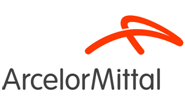Prices

April 14, 2022
ArcelorMittal Takes Majority Stake in Voestalpine Texas HBI Plant
Written by David Schollaert
ArcelorMittal has agreed to acquire a controlling stake in Voestalpine’s hot-briquetted iron (HBI) plant in southern Texas, in a deal that values the operations at $1 billion.
The Luxembourg-based steelmaker will take an 80% stake in the plant located in Portland, Texas – just outside of Corpus Christi. Opened in October 2016, it’s one of the largest of its kind and has an annual capacity of two million metric tons (2.2 million short tons) of HBI.
![]() “This is a compelling strategic acquisition for our company. It accelerates both our progression into producing high-quality metallic feedstock for EAFs and our global decarbonization journey,” ArcelorMittal CEO Aditya Mittal said in a statement. “The facility is world-class and is ideally located, with its own deep-water port. There is also unused land on the site, which provides interesting options for further development.”
“This is a compelling strategic acquisition for our company. It accelerates both our progression into producing high-quality metallic feedstock for EAFs and our global decarbonization journey,” ArcelorMittal CEO Aditya Mittal said in a statement. “The facility is world-class and is ideally located, with its own deep-water port. There is also unused land on the site, which provides interesting options for further development.”
The deal includes a long-term offtake agreement between ArcelorMittal and Voestalpine, an Austrian steelmaker. It ensures annual volumes of HBI are supplied in line with Voestalpine’s equity stakes in steel mills at Donawitz and Linz, Austria.
Voestalpine will retain the remaining 20% stake in the plant. The balance of the plant’s production will be delivered to third parties under existing supply contracts and to ArcelorMittal’s own facilities, including to AM/NS Calvert, its joint venture with Nippon in Calvert, Ala. That will happen upon the commissioning of AM/NS Calvert’s new EAF, which is expected in the second half of 2023, the company said. The EAF will have capacity of 1.5 million metric tons, or 1.65 million short tons, per year.
“ArcelorMittal is already one of the world’s largest producers of DRI. This acquisition will further strengthen our position and guarantee security of supply to AM/NS Calvert, while our experience will bring significant value to the asset,” Mittal said.
For Voestalpine, the deal allows it to secure the HBI needed for its EAF steelmaking and to exit the merchant HBI business, a strategy that brought added volatility to its operations, the Austrian steelmaker said. The company plans to put EAFs into operation at Linz and at Donawitz in early 2027.
HBI is a high-quality feedstock made through the direct reduction of iron ore. It used to produce high-quality steel grades primarily in electric arc furnaces (EAF). It can also be used in blast furnaces, resulting in lower coke consumption. The product is a premium raw material, a compacted form of direct-reduced iron (DRI) with better shipping and handling properties, ArcelorMittal said.
“DRI is a feedstock which has a very important role to play in our decarbonization ambitions, as we have announced plans to construct DRI facilities at several sites across Europe and in Canada,” added Mittal. “Today’s transaction, therefore, represents an important further step in our climate action journey.”
ArcelorMittal’s latest deal is in line with its innovative-DRI strategy. The steelmaker has a combined investment of $5.6 billion in projects to construct additional DRI and EAF capacity at its operations in Belgium, Canada, France, and Spain. The efforts should result in 19.5 million tons in reduced carbon emissions – equivalent to the greenhouse gas emissions from 4.24 millon fewer cars being driven for a year.
ArcelorMittal aims to reduce its CO2 emissions intensity by 25% by 2030 group-wide, and in Europe by 35% by 2030, the company said.
The deal is subject to customary regulatory approvals, ArcelorMittal said.
By David Schollaert, David@SteelMarketUpdate.com







